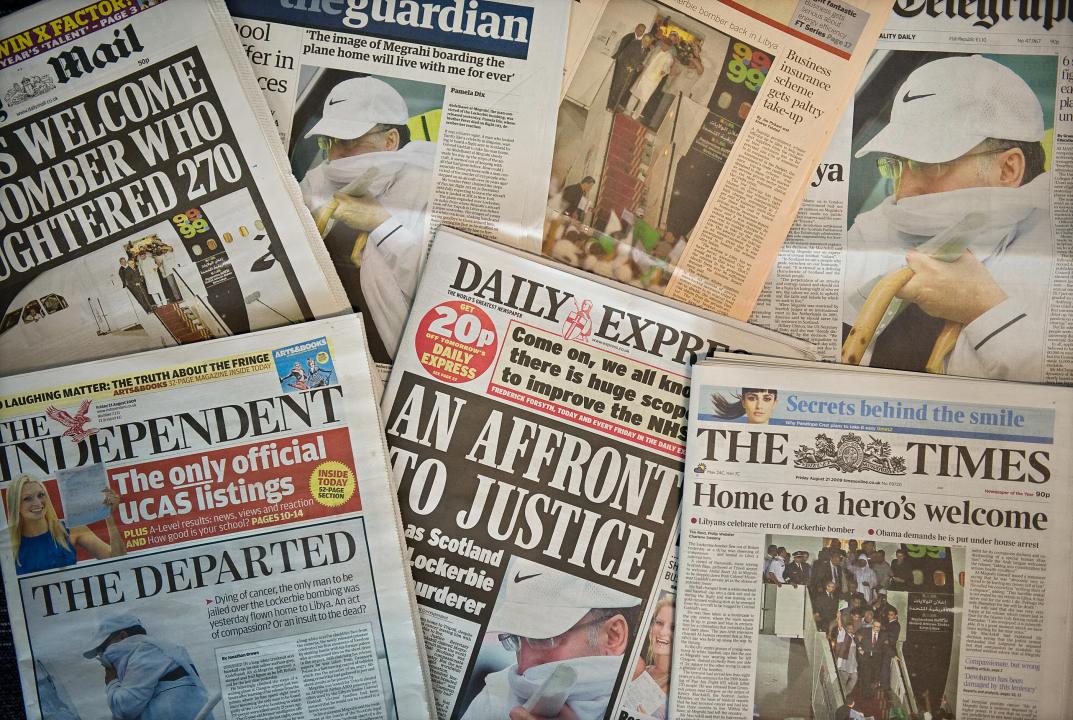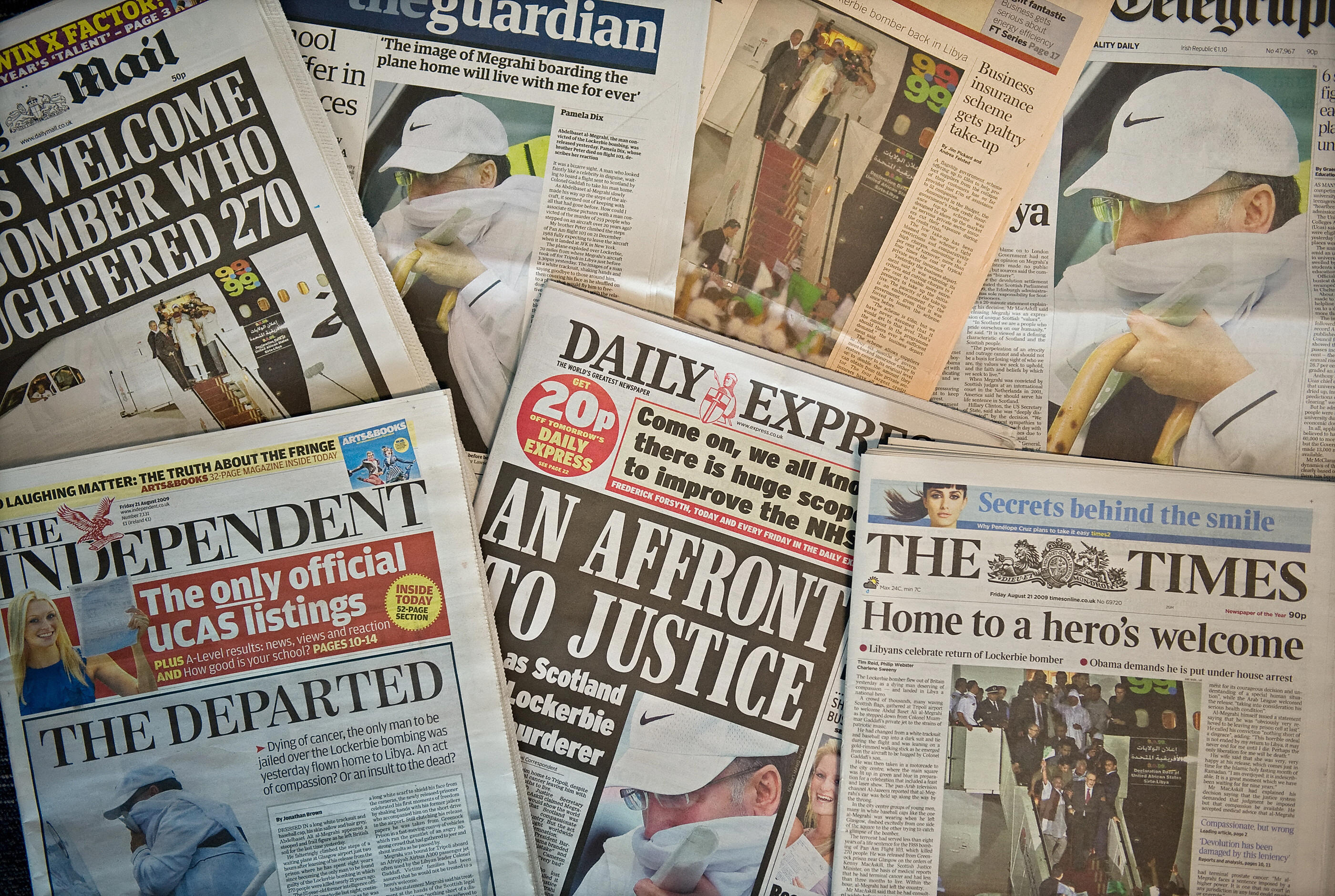So, it seems some kind of torturous “deal” has been reached in London on how best to regulate the press in the future. If David Cameron’s proposals for a Royal Charter are less reprehensible than the plans favoured by Labour and Liberal Democrats that is not, in the end saying very much. But I suppose even midget mercies are worth welcoming.
This is not quite the end of the matter, however. It remains to be seen what impact this deal has on the other jurisdiction in these islands. That press regulation is a devolved matter is, I think, pretty much an accident (it was left off the list of explicitly reserved powers) but devolved it is. Alex Salmond convened an “expert panel” headed by the former Solicitor-General Lord McCluskey to consider how to build upon Lord Leveson’s proposals. He may regret doing so now. I wrote about this for yesterday’s edition of Scotland on Sunday:
It seems sadly typical of devolution’s often underwhelming history that Scotland should take a bad idea forged in London and make it appreciably worse. Such, alas, is the case with the Caledonian response to Lord Leveson’s cockamamie recommendations for press regulation.
The “expert panel” Alex Salmond asked to produce a Scottish answer to the supposed problem of press regulation has published a document that is by turns confused, heavy-handed, super-statist, inimical to freedom and, in the end, farcical. It is a farrago of wishful thinking, hopeless naiveté and predictable ignorance.
[…] Leveson and McCluskey are already out of date. They are solutions in search of a problem.
[…] The supporters of state-sponsored – sorry, “state-underpinned” – regulation seem breezily confident their proposals would be the end of the matter. Leveson and McCluskey each seem utterly blind to the idea, far less the well-established reality, of regulatory creep.
[…] Leveson, sensing that technological changes to the industry complicated his brief, simply avoided questions about the internet. The McCluskey panel is not so feart. Everyone and anyone publishing anything anywhere online should be subject to Scottish “press regulation”.
The report is clear on this. All “news-related material” including “comment” and “gossip” falls within the regulatory purview. As Scottish case law has viewed “publication” to mean where an item was downloaded or viewed this would seem to extend the regulator’s remit to cover, for example, an expatriate blogger writing about Scottish affairs or, for that matter, any foreign publication which can be viewed online from Scotland. Good luck enforcing that.
Advocates of press regulation are quick to look overseas for international examples that bolster their case. But the only international comparison worth a damn is the protections afforded the press by the First Amendment to the Constitution of the USA. No American newspaper could or would accept signing up to Leveson’s proposals, far less the compulsory regime suggested by McCluskey.
Leveson and the McCluskey panel each insist their recommendations do not grant significant regulatory powers to the state. They appear to think no one will trouble themselves to read the detail of their proposals. McCluskey’s draft bill, for instance, establishes a “Recognition Commissioner” who will be appointed by ministers. The Recognition Commissioner will be tasked with ensuring the “independent” body regulating the press fulfils its remit.
This state-appointed official “may withdraw recognition as the approved regulator” if the Commissioner is satisfied that “the body is not meeting the approval requirements”. In those circumstances, “Scottish ministers must constitute a body to fulfil the functions of approved regulator and submit that body for recognition by the Recognition Commissioner.” In other words, the “independent” regulatory body must satisfy a government-appointed commissioner or risk being replaced by a wholly state-appointed regulatory regime. The regulator’s independence is so severely compromised that you need not own a tinfoil hat to think this is, implicitly, state-regulation in all but name.
Whole thing here. By contrast, Robin McAlpine thinks the press are guilty of a monumental (even by their/our lofty standards) hypocrisy. Perhaps so but that hardly damns the actual merit of actual press complaints. But I prefer Kenneth Roy’s response. The editor of the Scottish Review says neither he nor his publication will register with McCluskey’s compulsory scheme of press regulation.
It is hard to make a good case for there being a separate Scottish regulatory regime anyway, far less one that has a chance of actually working. Nevertheless this “McLeveson” test is an interesting challenge for Alex Salmond. The First Minister is not in the habit of inconveniencing powerful interest groups and though his wooing of the press has not always produced the results he’d desired he has an opportunity to earn himself soem credit with proprietors. More nobly he’d also be doing the right thing if he puts McCluskey’s dismal report in the shredder.








Comments